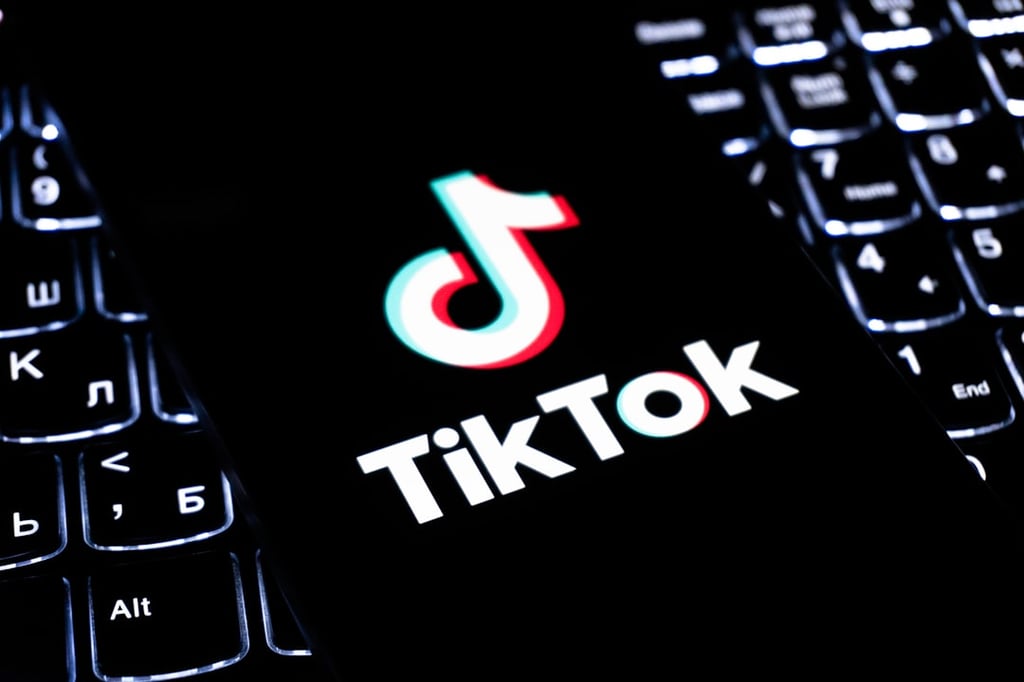Apple Pay, which is the long-awaited Apple mobile payment system the company rolled out this week, will probably make a lot of iPhone and iPad users very happy. What’s not to like? It makes capitalism more friction-free. If you have the right hardware, it makes spending money easy — just tap an NFC device at the register while touching the iPhone’s Touch ID sensor, and the purchase is done. (Online, just touch the sensor to verify payment.)
And Apple Pay will almost certainly make Apple happy. Apple is going to make a lot of money on this.
But an unintended consequence of the Apple Pay rollout is that it’s going to make a lot of other people happy, too.
Here are some of the unexpected beneficiaries of Apple Pay.
Google and Android Users
While a minority of smartphone owners in the US uses iPhones (just over 40% at last count), that minority is made up of people with more money to spend. Median income for American iPhone owners is about 40 percent higher than Android users.
Within a year or two, it will be considered a kind of suicide for higher-end retailers to not support Apple Pay, as iPhone users will expect to use it.
Google has been trying, and mostly failing, to start a widespread movement in favor of mobile payments with Google Wallet. So have others, including the unfortunately named Isis, now called Softcard, Square and others.
Google Wallet is not widely supported. And the NFC that it requires for a normal point of sale process has also not been widely deployed in the past. There are some six million US retail outlets, but fewer than one quarter of one million support NFC.
Over the next two years, we can expect an explosion in the adoption of NFC in retail stores.
Most of the credit is due to the hackers who compromised major retailers recently — including Target, Home Depot, Supervalu, UPS, Dairy Queen, P.F Changs, Neiman Marcus and others. In these massive breaches, hackers stole the personal and financial data (including credit card data) of dozens of millions of users. As a result, many retailers are quickly embracing EMV point of sale systems (EMV stands for Europay, MasterCard and Visa). And, guess what? These systems all come with NFC built in.
But some credit is due to Apple, and the comprehensiveness and quality of their launch. They’re mainstreaming mobile payments in the US at long last. That higher usage and higher visibility will accelerate the adoption by retailers of NFC point of sale systems, which will in turn drive the installation of NFC in Android phones and the use of Mobile Wallet by Android users.
It’s also likely that Google or Google handset makers or both will duplicate the convenience of Apple Pay, improving both the experience for Android users and also adoption among those users.
In a nutshell, Apple Pay will increase the number of retailers using NFC to a higher level than would exist without Apple Pay, and also drive better user experience for Android mobile wallet applications.
Retail Stores, Hotels and Restaurants
Over the next couple of months, retail outlets that support Apple Pay will include dozens of major companies, including McDonald’s, Disney, Whole Foods, Macy’s, Bloomingdale’s, Chevron, Texaco, Foot Locker, RadioShack, Walgreens and many others.
Apple Pay will make life better for retailers. In addition to replacing credit card purchases, which are time consuming, it will also replace many cash transaction. This will lower the cash on hand, reducing the incentive for robberies.
In the same way that consumers spend more with credit cards than with cash because of the convenience factor (and because it’s more abstract — you don’t “feel” the spending as much), Apple Pay may drive up purchases even further still, because payment and tipping is just a one-tap proposition.
Also: Because payments are faster, and because the cashier becomes somewhat redundant, retail stores should be able to reduce staff and save a bundle.
And finally, Apple Pay is massively faster than credit card, cash or check transactions. The more people use it, the faster lines in stores will go for all customers.
Financial Institutions
So far, Apple has bragged vaguely about lining up more than 500 US banks and other financial institutions, and specifically about American Express, Bank of America, Capital One, JPMorgan Chase, Citibank, Wells Fargo, Barclaycard, Navy Federal Credit Union, PNC, U.S. Bank and USAA. The companies now on board together process more than 83% of the credit card transactions in the US — and that’s before they even launched.
Most participating banks and credit unions that have commented on Apple Pay so far give it rave reviews, saying (as in the case of a Navy Federal Credit Union executive) that Apple Pay is “convenient, secure and private.”
Of course, major retailers have been taken to the cleaners by hack attacks recently. And guess who pays for that? The financial institutions take the hit.
Like Google Wallet, Apple Pay uses tokenization, which means the user’s credit card information is never shared with the store. The user is authenticated by the iPhone using Touch ID. Then a one-time-only string of randomized data is generated for that transaction, passed right through the store’s system and on to the bank. In fact, the credit card number isn’t stored on the phone at all, nor even on Apple servers — Apple doesn’t even know what you bought, where you shopped or how much you spent.
Future hacks of the kind that have been pandemic in retail will not include any information for Apple Pay users, because there’s no data on the stores’ servers to steal. The more transactions that happen with Apple Pay, the less money the banks lose.
Apple Pay is the most secure mobile payment system yet — more secure even than the chip-and-pin systems used outside the US, and way more secure than the magnetic credit card system used by most credit card transactions. And it’s more secure than Google Wallet because of the widespread use of Touch ID fingerprint identification.
Another huge benefit is that Apple Pay is so convenient (and will lead the whole industry to greater use of mobile transactions) that many cash transactions will be replaced with Apple Pay. This is obviously a huge boon for the banks, which get nothing when people use cash.
iOS App Makers
Apple announced last week that the company’s new iPad Air 2 and iPad mini 3 tablets will work with Apple Pay, but not in brick-and-mortar retail locations — just in apps. And, of course, Apple Pay-supporting iPhones will work in apps.
At launch, Apple had already arranged for apps from Fancy, Groupon, HotelTonight, Houzz, Instacart, Lyft, OpenTable, Panera Bread, Spring, Staples, Target, Uber and many others.
Because Apple Pay will make in-app purchases trivially easy, people will spend more and app makers will have much higher monetization.
The Downside
Of course, Apple Pay isn’t all good.
It adds risks for iPhone users, who are already singled out for higher rates of attack and theft. Now, instead of just stealing a wallet and spending the cash and using the credit cards, an iPhone replacement for a wallet now requires the participation of the owner, possibly at gunpoint.
It also takes control away from retailers, who will not be able to harvest personal data of customers as they would prefer to do.
Still, Apple Pay is going to change everything, and on the whole for the better. And not just for participating users. For just about everybody.
-
Ethics and Artificial Intelligence: Driving Greater Equality
FEATURE | By James Maguire,
December 16, 2020
-
AI vs. Machine Learning vs. Deep Learning
FEATURE | By Cynthia Harvey,
December 11, 2020
-
Huawei’s AI Update: Things Are Moving Faster Than We Think
FEATURE | By Rob Enderle,
December 04, 2020
-
Keeping Machine Learning Algorithms Honest in the ‘Ethics-First’ Era
ARTIFICIAL INTELLIGENCE | By Guest Author,
November 18, 2020
-
Key Trends in Chatbots and RPA
FEATURE | By Guest Author,
November 10, 2020
-
Top 10 AIOps Companies
FEATURE | By Samuel Greengard,
November 05, 2020
-
What is Text Analysis?
ARTIFICIAL INTELLIGENCE | By Guest Author,
November 02, 2020
-
How Intel’s Work With Autonomous Cars Could Redefine General Purpose AI
ARTIFICIAL INTELLIGENCE | By Rob Enderle,
October 29, 2020
-
Dell Technologies World: Weaving Together Human And Machine Interaction For AI And Robotics
ARTIFICIAL INTELLIGENCE | By Rob Enderle,
October 23, 2020
-
The Super Moderator, or How IBM Project Debater Could Save Social Media
FEATURE | By Rob Enderle,
October 16, 2020
-
Top 10 Chatbot Platforms
FEATURE | By Cynthia Harvey,
October 07, 2020
-
Finding a Career Path in AI
ARTIFICIAL INTELLIGENCE | By Guest Author,
October 05, 2020
-
CIOs Discuss the Promise of AI and Data Science
FEATURE | By Guest Author,
September 25, 2020
-
Microsoft Is Building An AI Product That Could Predict The Future
FEATURE | By Rob Enderle,
September 25, 2020
-
Top 10 Machine Learning Companies 2021
FEATURE | By Cynthia Harvey,
September 22, 2020
-
NVIDIA and ARM: Massively Changing The AI Landscape
ARTIFICIAL INTELLIGENCE | By Rob Enderle,
September 18, 2020
-
Continuous Intelligence: Expert Discussion [Video and Podcast]
ARTIFICIAL INTELLIGENCE | By James Maguire,
September 14, 2020
-
Artificial Intelligence: Governance and Ethics [Video]
ARTIFICIAL INTELLIGENCE | By James Maguire,
September 13, 2020
-
IBM Watson At The US Open: Showcasing The Power Of A Mature Enterprise-Class AI
FEATURE | By Rob Enderle,
September 11, 2020
-
Artificial Intelligence: Perception vs. Reality
FEATURE | By James Maguire,
September 09, 2020
SEE ALL
ARTICLES







